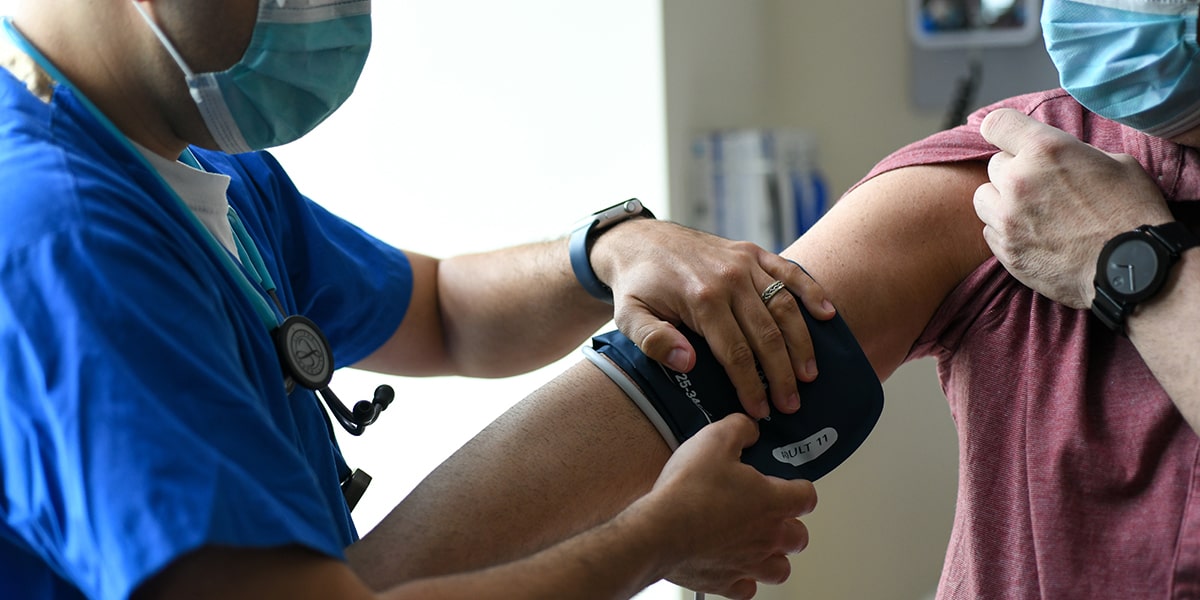Hackensack University Medical Center Studies Orthostatic Intolerance and Autonomic Dysfunction in PASC Patients
JACC Publication Suggests Patients with PASC Commonly Exhibit Orthostatic Intolerance Suggestive of Autonomic Dysfunction

Individuals with Post-Acute Sequela of COVID-19 (PASC) often report symptoms of orthostatic intolerance and autonomic dysfunction. A few case reports suggest a correlation of PASC to Postural Orthostatic Tachycardia Syndrome (POTS), a particular form of autonomic dysfunction. A study published in the Journal of American College of Cardiology provided a formal prospective evaluation of these cardiovascular components of PASC.
The study team, including researchers from Hackensack University Medical Center, performed head-up tilt table (HUTT) testing in 24 symptomatic PASC patients, gauging orthostatic intolerance suggestive of autonomic dysfunction. The observational evaluation included PASC patients reporting symptoms of poor exertion tolerance, tachycardia with minimal activity or positional change, and palpitations.
Twenty-three of the 24 patients experienced orthostatic intolerance on HUTT. Four demonstrated POTS, 15 displayed orthostatic intolerance after nitroglycerin or provoked orthostatic intolerance (POI), three experienced neurocardiogenic syncope, and one had orthostatic hypotension. Compared to those with POTS, patients with POI described significantly earlier improvement of symptoms.
The evaluation revealed orthostatic intolerance on HUTT suggestive of autonomic dysfunction in nearly all participants. The researchers concluded that individuals with POI may be further along the path of clinical recovery than those demonstrating POTS.
Learn more about groundbreaking cardiac care happening at Hackensack University Medical Center.
